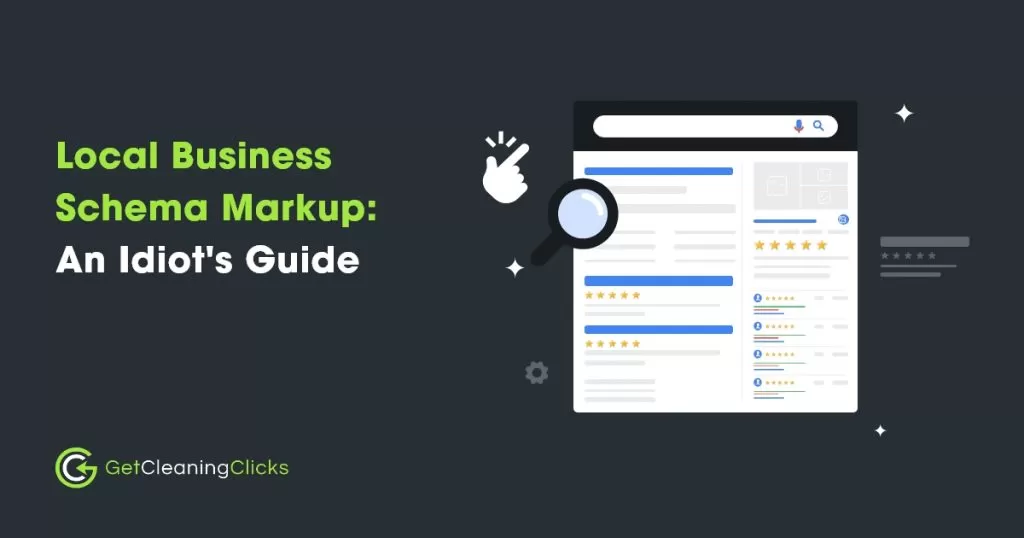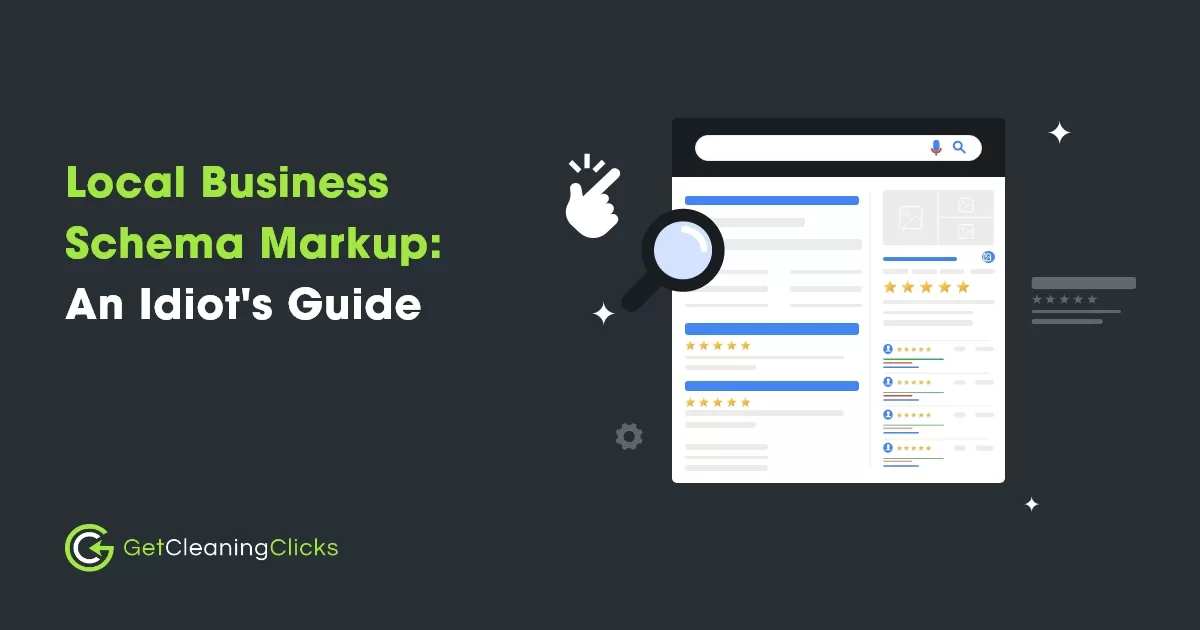
This post will gear you up with what you need to know about local business schema markup.
Using schema markup for local businesses is another way of optimizing your cleaning website for local SEO. It will help your visitors and search engines.
If you apply the lessons as soon as possible, your website will earn higher search rankings. Plus, your cleaning service business will be the talk of the town.
What is local business schema markup?
Local business (also stylized as LocalBusiness in schema.org) schema markup is a markup type or structured data type for your website. It shows important information about your local business on Google and other search engines.
It also refers to other properties defined within schema.org’s vocabulary. There, the local business schema category is a subtype of other schema markup types such as Place and Organization.
Why use local business schema markup?
You’re a local business and, therefore, should use local business schema markup. If you’re using the power of local citation to boost your SEO, local business schema markup will complement it.
And like local citation building, using schema markup for your local business can help you get on the good side of search engines. What schema can do is make it easier for search engines to identify the details of your business.
Here are more benefits:
- More appealing to search engines – Your business information is easily readable by search. And the more search engines approve of your site, the better.
- Higher click-through rates – Research also shows it can lead to a boost of 3.6x in interaction and 1.5% dwell time.
- Increases potential customers – It’s easy to find information. And the easier people find the information they need, the better.
How to add local business schema markup
You can add a local business schema markup using a code generated by Google’s Structured Data Markup Helper. Or you can easily do this with a plugin that will allow you to enter information.
Here, let’s use the homepage of Rain City Maids as an example. Rain City Maids is a company that provides professional house cleaning services in Washington and nearby areas.
Without plugin
Step 1 – Visit Google’s Data Markup Helper
Specify Local Businesses as a data type. Then provide the URL of your local business and click Start Tagging.
Step 2 – Tag details to use as markup data
On the new page, provide information about your business in the right section. To do this, start tagging the elements from your source on the left section.
For example, let’s specify the name of your business. So, find the name of your business on the left section, right-click on it, and choose Name from the options.
To provide markup data for the other fields on the right, repeat this process — and choose the correct label from the options.
And once you’re set, click CREATE HTML.
Step 3 – Copy code
On the next page, highlight the code presented to you. Then right-click and hit Copy.
You may also click the Download button on the upper section. This will also get the code presented on the page.
Once you’re ready, click Finish to proceed to the next step.
Step 4 – Paste code to content management system
Head over to your content management system’s Theme Editor.
There, load your header.php file and locate the <head> tag. Paste the code there and hit Update File to save the changes.
With plugin
Adding local business schema markup without plugins and using Google’s Markup Helper is easy. Want to make it even easier?
Use plugins!
If you’re using WordPress, here are the recommended ones:
- Schema & Structured Data for WP & AMP – This plugin sticks to Schema.org’s guidelines to structure your website for SEO.
- Schema – All In One Rich Snippets – This popular plugin is easy to use. And it presents eye-catching search results.
- WP SEO Structured Data Schema – This is a comprehensive, structured data solution.
Tips on how to use local business schema markup
Using local business schema markup will work to your advantage if you implement it correctly.
Here are tips that will help you succeed:
Follow Google’s guidelines
Using local business schema markup can make your business information visible, alright. However, if you don’t abide by Google’s guidelines about using schema markup, the search engine will see your efforts as ineligible.
Here are some tips:
- Use the right structured data format – The formats are microdata, RDFa, and JSON-LD. Google recommends JSON-LD.
- Put in relevant location – Use structured data for the page or content that the data describes. For example, if it’s about opening hours, don’t squeeze it in a page about generic cleaning tips.
- Don’t markup irrelevant data – This is in relation to putting structured data in a relevant location. The content visitors see should also be the contents of the HTML body.
Use testing tools
Errors in code can lead to a problematic site. So, use Google’s Structured Data Testing tool to identify errors before you implement the markup code on your website.
With a copy-paste function, it’s handy and easy to use. And it can validate different data markup formats.
Here are more testing tools:
- SEO Site Checkup – You can use it to test if your website is implementing microdata specifications. And this tool also features many website analysis features.
- Structured Data Linter – This validates different markup formats. And ensures that they’re up to the latest specifications.
- JSON-LD Playground – This tool allows you to see the code live.
Use “the best” schema markups
The best markups are subjective. And they depend on your business.
You can get all maintained codes in schema.org’s local business section.
And apart from NAP details, here are other excellent markups for local businesses.
- Reviews – They help you with online reputation management.
- Events – You may narrow down the events section to feature specific events. The more specific, the better.
- Geographic tags – Geographic information makes it easier to find your physical location.
Wrapping it up
Using local business schema markup is a lot like tweaking your website to make it more usable for voice search.
Voice search, after all, is increasingly getting popular. Compared to a decade ago, relaying voice commands and “speaking” to search engines aren’t foreign concepts. And with more and more people wanting the most convenient approach of receiving information, you can see why.
A simple way to join the bandwagon? Use local business schema markup for your cleaning site! As the discussions above can support, it can make your business information more searchable.

